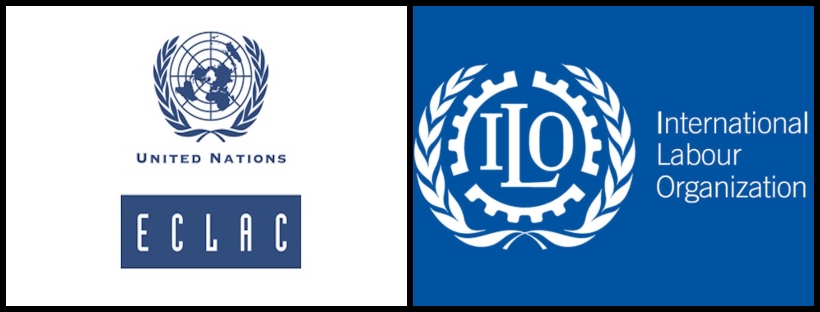The post-COVID-19 labour market reactivation in Latin America and the Caribbean will be slow and it will take a lot of time for the world of work’s main indicators such as equal employment opportunities and adequate pay for both sexes to return to the levels seen before the health crisis. This was recently noted by the Economic Commission for Latin America and the Caribbean (ECLAC) and the International Labour Organization (ILO) in a joint publication called Employment situation in Latin America and the Caribbean. Employment trends in an unprecedented crisis: policy challenges.
The report was recently presented simultaneously in Santiago, Chile and Lima, Peru via a joint virtual press conference led by the Executive Secretary of ECLAC, Alicia Bárcena, and the ILO’s Regional Director for Latin America and the Caribbean, Vinícius Pinheiro.
ECLAC and the ILO warned that returning to pre-pandemic economic activity levels will take several years, which will translate into a slow recovery in employment. Expounding further, both international bodies noted that if the average growth rate in regional Gross Domestic Product (GDP) held steady at 3.0 per cent, GDP would only return to 2019 levels in the year 2023. However, with the average rate seen over the last decade (1.8 per cent), it noted that GDP would not attain 2019 levels until 2025. And with the average rate notched during the last six years (0.4 per cent), they cautioned that this could not be achieved in the next decade.
In light of this, the United Nations organizations stress that active macro policies are needed along with sectoral policies that would promote sustainable development with employment. The institutions said that this entails furthering policies that stimulate jobs and growth, underpinned by active fiscal policies that foster employment, with labour-intensive investment projects and with a focus on environmental sustainability. They said that it is also necessary to provide financing and liquidity to Micro, Small and Medium-sized Enterprises (MSMEs), with longer maturities and at a lower cost.
In addition to supplying figures on labour market dynamics in recent months – especially in the first two quarters of 2020 – the joint ECLAC-ILO report indicates that for numerous reasons, women, young people and migrants are among those heavily impacted by the health crisis. More specifically, the second part of the document examines the way in which young people have been affected by the current employment situation.
According to the report, in 2020 the COVID-19 pandemic dealt an unprecedented blow to the economies and labour markets of Latin America and the Caribbean, which has led to the biggest contraction in the last 100 years, with major economic, labour, social and production-related costs.
Guyana Standard understands that the groups most affected have been those that cannot work from home (telework) because of their type of employment. This includes women, who in addition to experiencing job losses have also had to leave the labour market to carry out care and household-related tasks; informal workers, affected by prohibitions on people’s movement and households’ lower capacity for hiring workers; sectors related to commerce, manufacturing, construction and services (tourism and entertainment); young workers who are just joining the labour market, due to the lack of new job creation; lower-skilled workers in general in more informal jobs that require physical proximity; and MSMEs.











